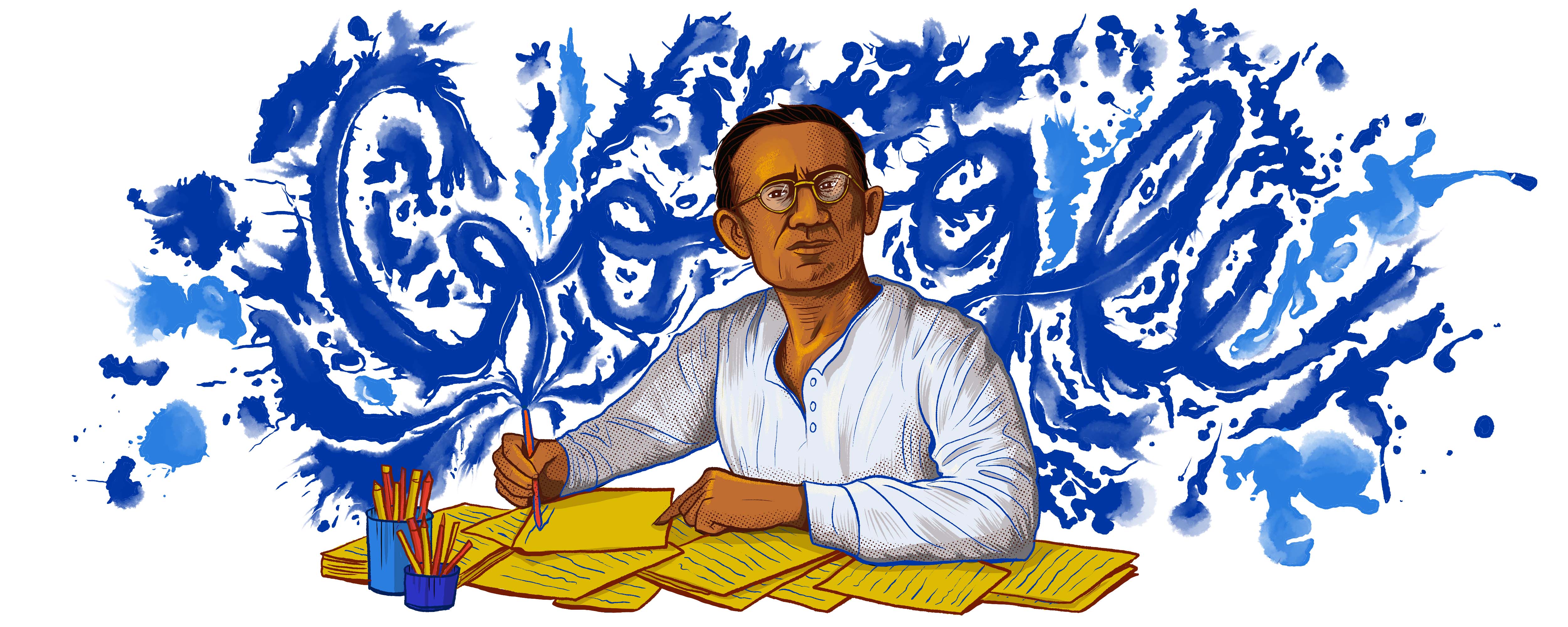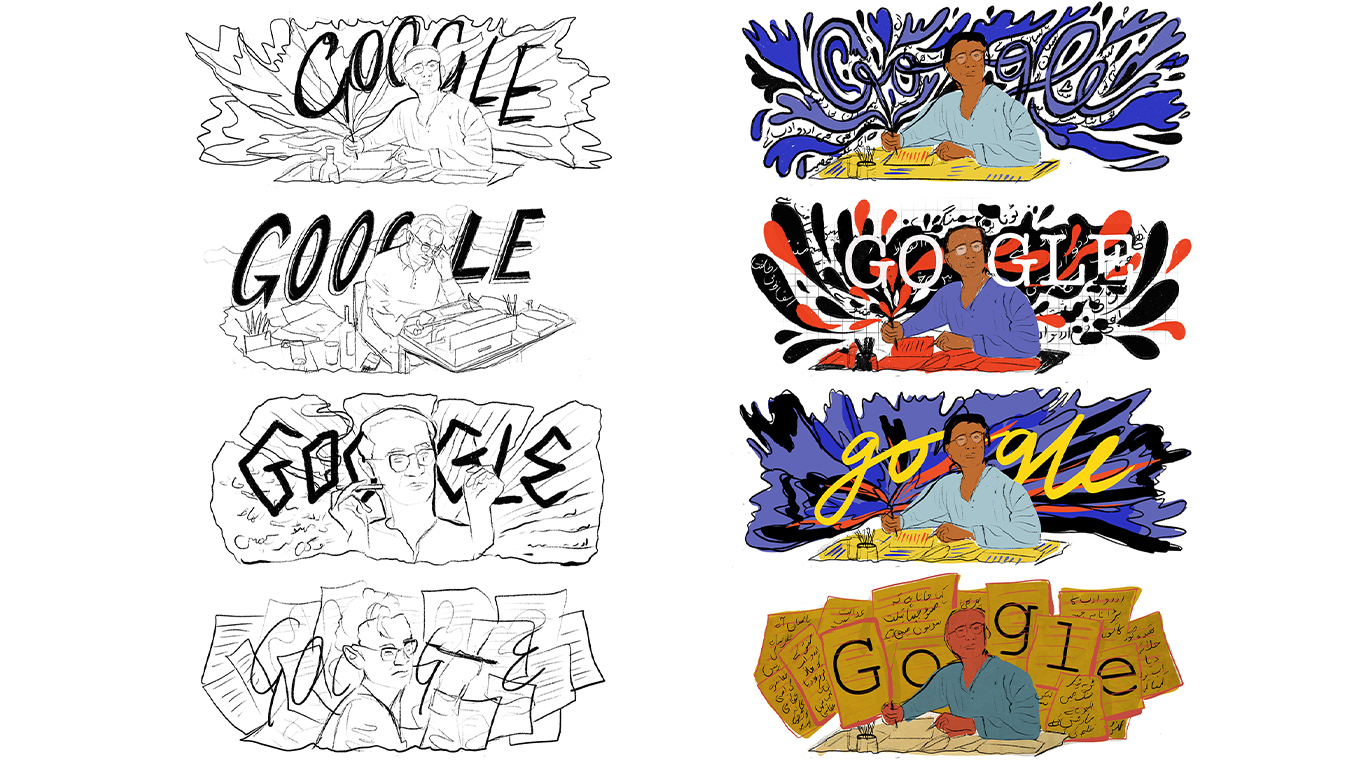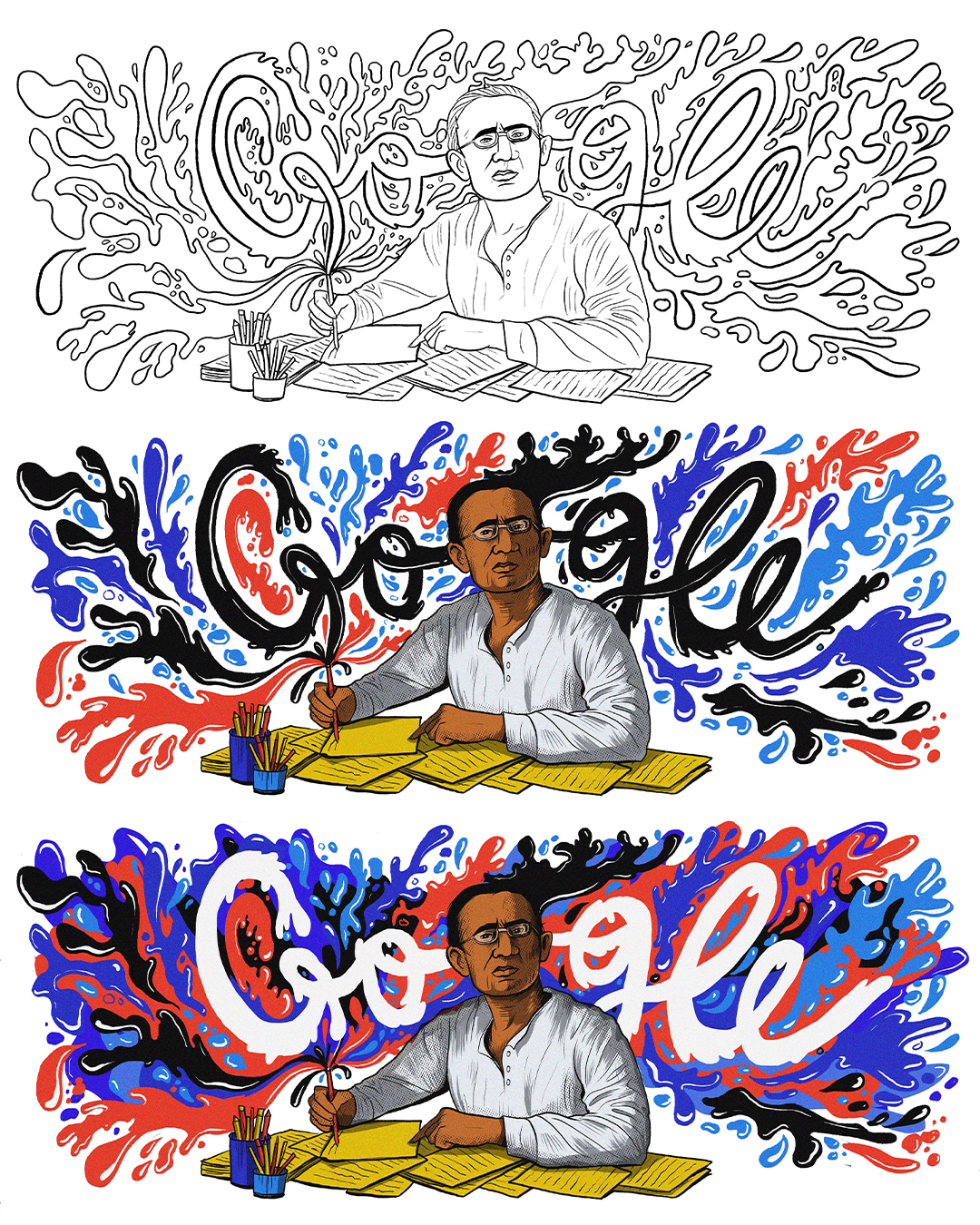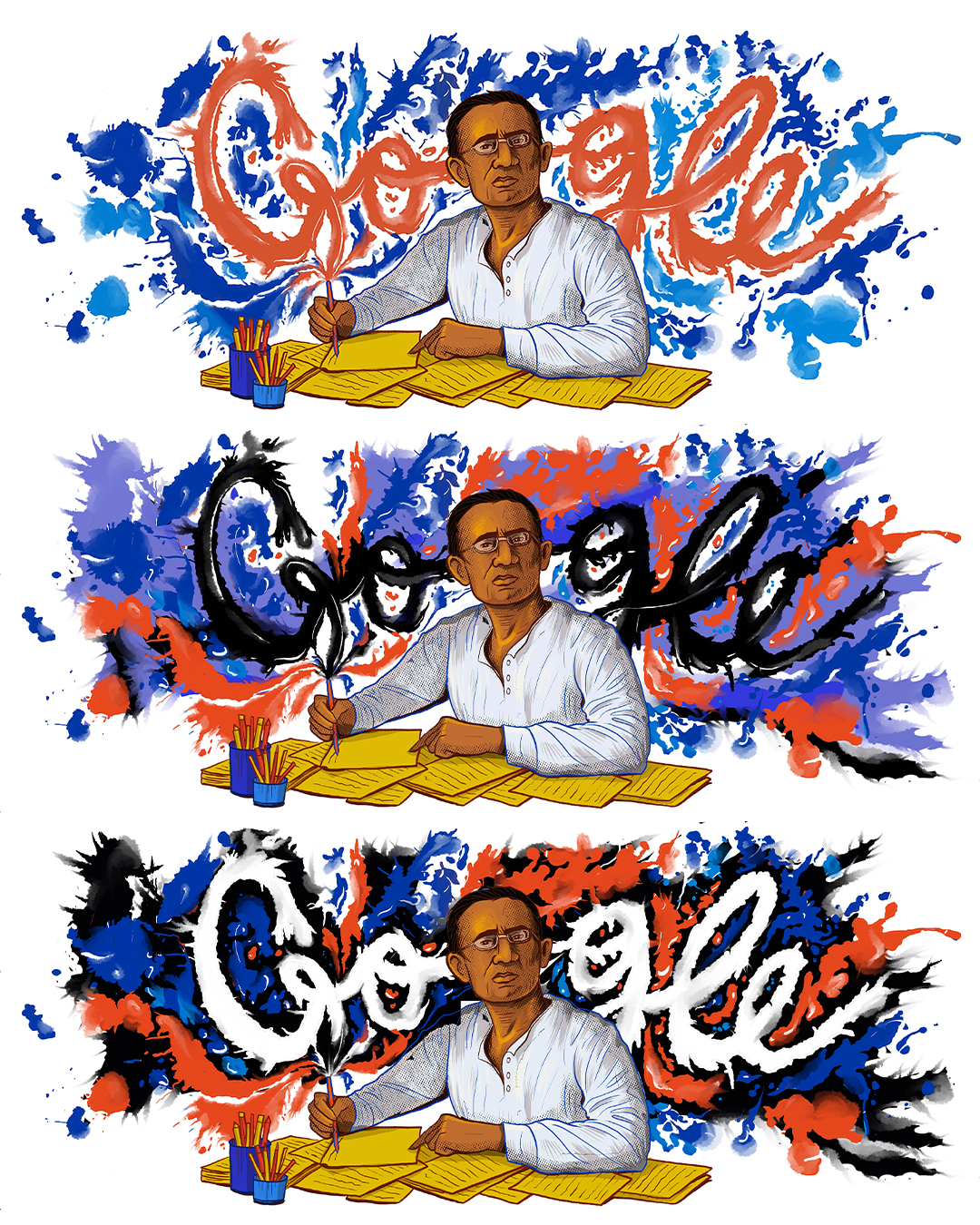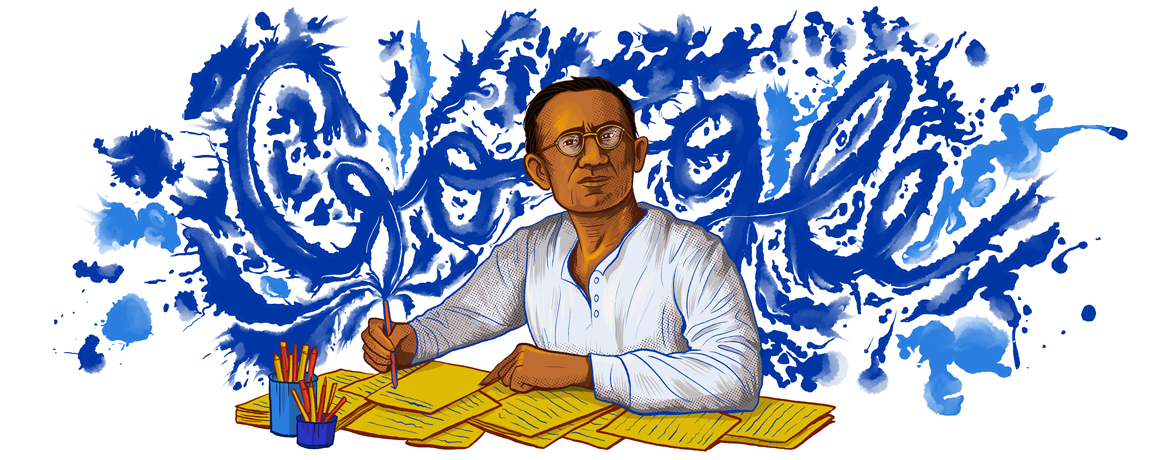I was asked to draw the Google Doodle to commemorate the legendary writer, Saadat Hasan Manto’s 108th birthday on May 11, 2020. Manto is a hero to me, so this was a huge honor!
Thank you to AD Angelica McKinley who was such an amazing person to work with. You can read more about Manto and the doodle here.

